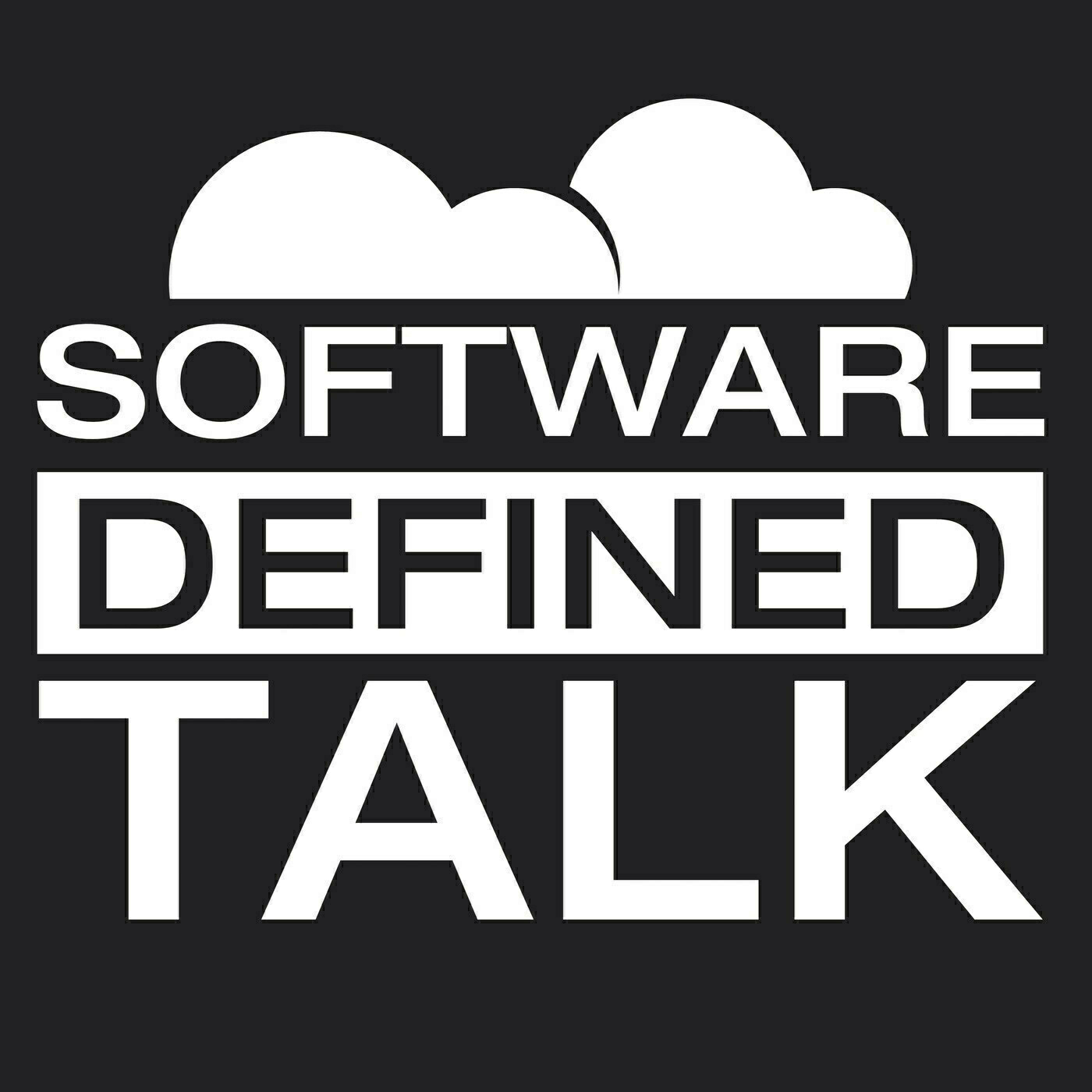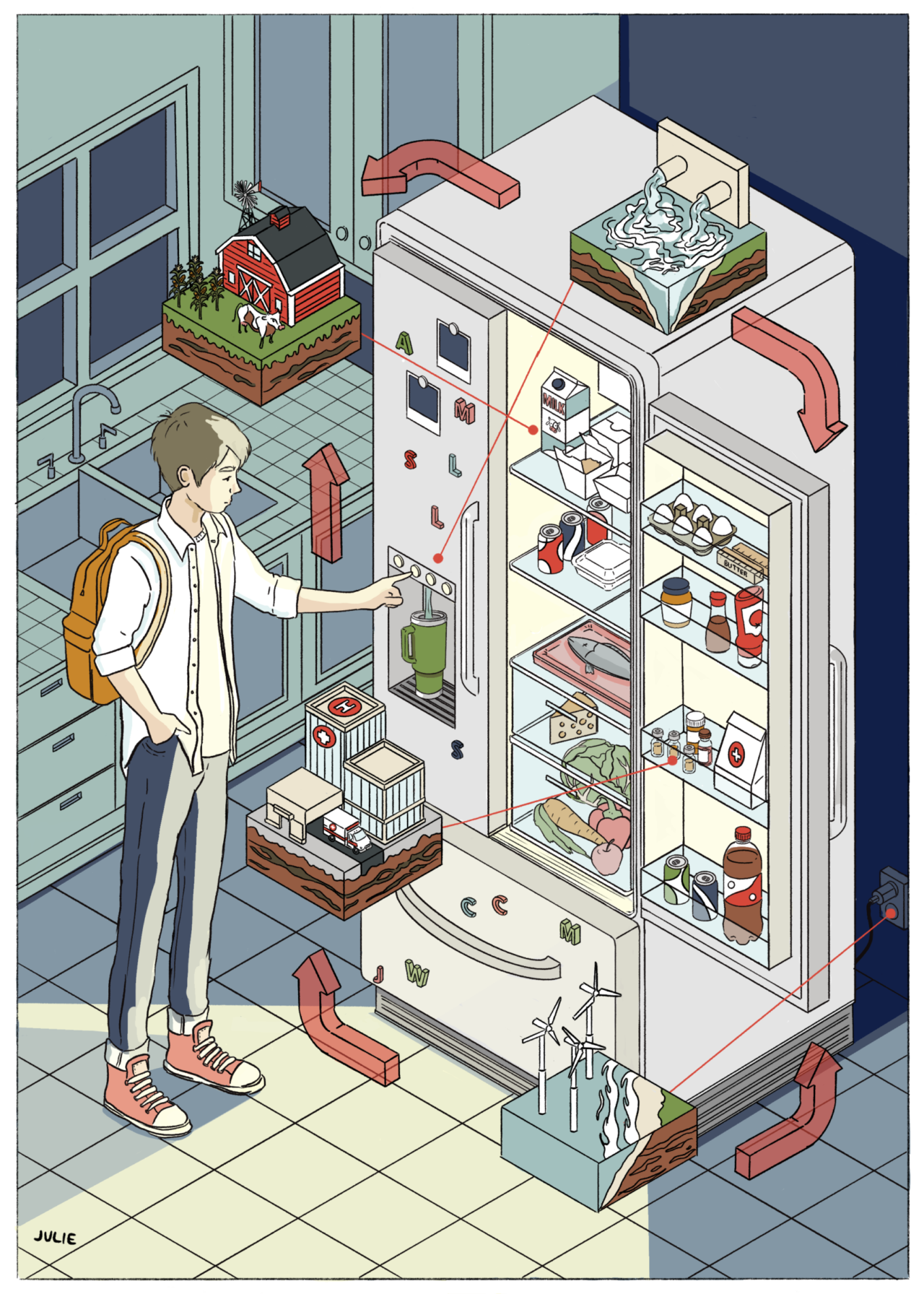Lots of links and stuff this episode: AI isn’t a coworker, it’s just automation wrapped in hype. Tech moves fast, but nothing lasts—except bad takes, questionable business models, and the creeping realization that managers just want fewer humans to manage. Meanwhile, we live like kings and don’t even notice.
Put it on ice
Good episode of Software Defined Talk this week, especially the opening moment of absurdity where we, yet again, try to solve Europe’s ice problem. Take a listen, or watch the unedited recording.
Wastebook
“Layered, polished mix: As expected, Dre’s meticulous production work ensures that every instrument sits perfectly in the mix, making for a cold, calculated vibe.” Respect. (The robot comments in “Big Egos.”)
"razvedka boyem –reconnaissance through battle: You push and you see what happens, and then you change your position."
Long skim content.
“Everything affects everything else,” Julia Evans. // I mean, I think she just cracked the code to, like, reality there, you know, everything.
“[Sorry, ugly people with good ideas.]” // Alternative funding source.
“A Cup of Coffee in Hell,” not cold, but helpful.
“If it moves, it’s probably alive,” logic.
“Cannabis, crypto or half of North Dakota?” Buttonwood.
“Sen. Mitch McConnell (R-KY), a polio survivor, was the lone Republican to vote against him.” Oophff. When you got that guy voting against you know your head is full of bologna.
Relative to your interests
Making smaller containerized apps - Smaller, more secure, and faster to deploy–because nobody wants a 500MB container just to run “Hello, World.”
The “AI Agent As Coworker” Narrative Is Nonsense The AI agent co-worker narrative is nonsense - Against the agentic hype: “You have to admire Benioff’s chutzpah in defining digital labor as some brand-new massive market opportunity. But to many, it just sounds like automation. Like every other phase of automation since the beginning of the industrial age, this phase is also about doing more with fewer human resources.” // Meanwhile, the counter case from Seth Marrs.
New estimates have ChatGPT using 10x less power than previously thought - ”it would actually be more energy efficient for you to have an LLM turn off your furnace than to walk across the house to manually turn the dial.”
The danger of relying on OpenAI’s Deep Research - Some valid critiques of Deep Research. Though, none of them really amount to “it’s not good.” To sum-up: it can’t do complex research, let alone come up with original ideas nor cover obscure topics. It can’t only tell you what the Internet knows. This is actually not fully accurate: you can also upload your own files and put in your own knowledge. For me, the main problem is the readability of the reports. While they are long and detailed, they’re not written in an engaging way they makes it easy to read. I have a pile of them that I’ve yet to fully pick through. // Yeah, these robots have little creativity and original thought and further on, they can only do the predictable. But, man, they sure can do a lot of it. // There is an annoying “buyer beware” nature of all this AI stuff. If you’ve used it for years, or even a few months, you de-hype it a lot. You know it’s limits and to treat it like a dumb tool. But, that is not how it is sold at all, and it’s not how people who don’t use it think of it.
All hat, no cowboy - A bicycle for your hands: “Becoming a good programmer takes time, so does becoming an artist. What if all the people with ideas but no time or skills or persistence or real interest could participate and _turn their ideas into the thing?_Surely non-musicians have great ideas for songs that they could turn into great songs if it weren’t for the inconvenience of musical instruments.” Yes, and: “One way to look at this – not a charitable way, but a view that feels true to me – is that managers view all need for human labor as an inconvenience. In part because they rarely get to experience what it’s like to be closer to a creative process, but also because they constantly experience the inconvenience of checking on deadlines and paying invoices. They would simply rather manage a robot than a human, so the only other people they have to interact with are other executives. Peak economic efficiency.”
One Year With the Vision Pro - Basically, not enough ROI for $3,500.
The Great AI UI Unification - What’s going on here is a classic power user versus normal user UX problem. I’m probably more power user than normal user. I don’t mind the UX, it’s easy access to docs that explain features that I find annoying. For example, try to do a deep explanation of what’s currently in ChatGPT Pro. There really isn’t. Even more so, last I looked the help page doesn’t list new features like Deep Search. And most ironically of all, if you ask ChatGPT itself, the answers are not great, or accurate. E.g., I asked about using its reminders and it didn’t even know it had them until I fed it to blog post on it. The naming of things is not helpful as well. // Tech companies are terrible about documentation. While obscure, Apple Short Cuts is a great example. Docs for that are terrible, usually non-existent.
Tech continues to be political - ”I don’t know how to attend conferences full of gushing talks about the tools that were designed to negate me. That feels so absurd to say. I don’t have any interest in trying to reverse-engineer use-cases for it, or improve the flaws to make it ‘better,’ or help sell it by bending it to new uses.”
Internal Product Management, Forrester.
AI Alone Won’t Drive Revenue - What Are You Missing? - Some light ROI talk.
I don’t know, despite this being from the UK (or maybe that makes the point): newsflash, Europe is expensive to live in, mostly by design as far as I can tell.
The Tyranny of Now - ”What Innis saw is that some media are particularly good at transporting information across space, while others are particularly good at transporting it through time. Some are space-biased while others are time-biased. Each medium’s temporal or spatial emphasis stems from its material qualities. Time-biased media tend to be heavy and durable. They last a long time, but they are not easy to move around. Think of a gravestone carved out of granite or marble. Its message can remain legible for centuries, but only those who visit the cemetery are able to read it. Space-biased media tend to be lightweight and portable. They’re easy to carry, but they decay or degrade quickly. Think of a newspaper printed on cheap, thin stock. It can be distributed in the morning to a large, widely dispersed readership, but by evening it’s in the trash.”
Learning from my mistakes… - It’s tough to monetize content that has near zero value or originality, and be easily pirated. This especially true if the price is wrong. That sort of applies to every product. // “In the end though, you can’t optimize your way out of a black hole, the gravity is too heavy. We were marketing a product at a price point that was material to our customers, and giving them content which was largely available from our competitors for free. All the tweaks in the world couldn’t change that.”
Why are big tech companies so slow? - Because they build, sell, and support a lot features.
How to add a directory to your PATH - Computers are easy, they said. You just need to read the manual, they said. It’s so intuitive!
Read by the robot
I don’t read everything, sometimes I have to robot read it for me. Here are it’s summaries.
AI agents are not coworkers, according to Forrester analyst Anthony McPartlin, who argued that the idea is little more than a marketing ploy. It’s just automation. His colleague Seth Marrs disagreed, predicting AI will become an indispensable workplace collaborator, though perhaps without an HR complaint line.
Meanwhile, most CFOs planned to increase tech budgets in 2025.
I’m guessing this dude isn’t meaning to be associated with the them, but here’s a little insight into how TheTechBros.gov think that might explain their batshit take on how to run a railroad.
Jack Crosbie mourned the decline of professional dress, noting that executives and tech billionaires get to dress however they want while the rest of us are left to wonder whether wearing Hoka running shoes to worksignals liberation or quiet surrender. This, of course, is only a problem if you don’t already own half of North Dakota.
Samir Varma declared freewill both an illusion and a practical reality in a post that argued no one—not even you—can predict what you will do next. The brain, it turns out, is deterministic but computationally irreducible, which is a fancy way of saying that you can only know what you’ll eat for dinner tomorrow by waiting for tomorrow. Until then, just assume it’s chicken.
Conferences
Events I’ll either be speaking at or just attending.
VMUG NL, Den Bosch, March 12th, speaking. SREday London, March 27th to 28th, speaking. Monki Gras, London, March 27th to 28th, speaking. CF Day US, Palo Alto, CA, May 14th. NDC Oslo, May 21st to 23rd, speaking.
Discounts: 10% off SREDay London with the code LDN10.
Logoff
Good overview from Bryan on the changes people often don’t make when they want to do the whole platform engineering things:
Platform teams can have a difficult time convincing their management of the importance of developer experience, instead being pushed toward traditional governance and control measures. While these measures might satisfy IT audit requirements, they can severely impact development team velocity. The result is predictable: development teams, under pressure to deliver business outcomes quickly, create workarounds or turn to "shadow IT" solutions.
Yes, and…
It feels like he’s suggesting either (1) it’s possible to do too much of governance, security, controls, etc., and, thus platform teams don’t have enough time for or stop doing customer work (focusing on developer needs first, security/etc. needs second), or, (2) that the governance, security control, etc. measures aren’t needed (as much). Of course, us platform vendors would say, (3) if you buy our products, out platform will automate a lot of the governance, security, controls so the platform team can focus on the customers, developers.
I don’t hear enough multi-year, enterprise success stories about platform engineering. It’s been three (four?) years since Humanitec declared DevOps dead and ushered in the idea for their IDP (back when “P” meant portal, not platform) product. Backstage was some kind of gas on the fire to all that. And, yes, here we are. It feels like the similar oddity with Kubernetes: lots of talking, then lots of figuring out how to adopt it, and only of big enterprise success stories. There are stories, but enough to justify having destroyed the progress we made with PaaS 5+ years ago. Something is wonky.
What is missing from all of this? Year after year, on this topic, it’s the same conversation.
There’s a digital transformation paradox here too: we’re always on about the urgency of needing to change, then we say there’s not enough change, and yet everything seems to be running just fine. Maybe it could be running even more fine!
One theory: because of the place I work, I don’t see all the success, just hear about the slogging from the people who want help. People who don’t need help don’t ask it. Coupled with: thought leaders don’t talk about everything being fine, that isn’t the job. Few people talk about ongoing success, so all I see is struggling.
//
This week the kids are out from school, so I’m trying to figure out vacationing.

